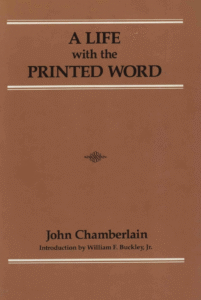Daniel Hannan makes a powerful case that “the world still needs what America stands for” – and so, too, do Americans. Three slices:
The American Revolution was a rejection of British citizenship, not of British values. Indeed, it was a clamorous assertion of all the things that, in the eyes of the Founders, had made them British in the first place: personal autonomy, representative government, religious liberty, habeas corpus, jury trials, the sanctity of contract, the rule of law, and constraints on executive power.
As Winston Churchill was to put it in his History of the English-Speaking Peoples: “The Declaration was in the main a restatement of the principles which had animated the Whig struggle against the later Stuarts and the English Revolution of 1688.”
American visitors to London are sometimes surprised to find prominent statues of six U.S. presidents, including Abraham Lincoln in Parliament Square and George Washington in Trafalgar Square. Yet, even in 1776, the American cause enjoyed widespread support in Great Britain. The most brilliant parliamentarians of the era, Edmund Burke, Charles James Fox, and Pitt the Elder, all favored the patriots. So, as far as we can make out, did a majority of the population — though, with a more limited franchise than in the colonial assemblies, that majority was not replicated in the House of Commons.
…..
To put it more briefly, the foundational value of the United States is liberty. I feel slightly silly having to write that, as it would recently have gone without saying. But when lots of young American conservatives are disowning the Founders and writing excitedly about Catholic integralism or the jurisprudence of the Nazi lawyer Carl Schmitt, it bears repeating. Listen to the two presidents whose statues have pride of place in London.
“Interwoven as is the love of liberty with every ligament of your hearts, no recommendation of mine is necessary to fortify or confirm the attachment,” said George Washington in his Farewell Address. Abraham Lincoln at Gettysburg defined the nation as having been “conceived in liberty.”
What does liberty mean? It means that the people in power can’t boss others around. It means that politicians are servants and not rulers. It means that private property and free contract are respected, that the coercive force of the state is a last rather than a first resort, and that the people in charge don’t get to make up the rules as they go along. It means, in short, a government of laws and not of men — a phrase attributed to John Adams, although, demonstrating my point about the Founders’ British identity, Adams was quoting the 17th-century English radical James Harrington.
…..
How secure is that tradition at home? Both parties seem increasingly unwilling to accept results that don’t suit them. There is, again, something creepily un-American about personality cults, about the willingness to contract out your opinions to a father-of-the-nation type, to change your views when he changes his.
The Founders would have had Trump down as a “Caesarist,” meaning a man whose personal ambition outweighed his respect for the republic. They would have been appalled, less by his executive power-grabs or desire for a third term — they knew such men — than by the obsequious way in which others encourage him to exceed his authority. They designed America expressly to prevent arbitrary rule.
Eric Boehm decries the cowardice of most Republicans regarding Trump’s tariffs punitive taxation of Americans’ purchases of imports. Two slices:
Rep. Tom McClintock (R–Calif.) describes himself as a “tariff skeptic.”
In that regard, his judgment seems sound. President Donald Trump’s tariffs are hiking costs for businesses and prices for consumers. They are not delivering the promised boom in manufacturing jobs. Polls show that most Americans dislike them.
Unlike most Americans, however, McClintock was in a position this week to translate that skepticism into action.
Given that chance, McClintock (and the vast majority of his Republican colleagues) chose cowardice and voted to continue Trump’s unilateral executive control over American trade policy.
…..
Few other Republicans said it as openly as McClintock did, but he’s hardly the only coward in the crowd. The “baseline House Republican position” is tariff skepticism, an unnamed administration official told Politico on Wednesday.
That makes a lot of sense, because you don’t have to be an economist to be a tariff skeptic at this point. Consider the amount of bonkers tariff-related news that happened just this week:
Let’s dwell on that last item for just a moment. Faced with a possible Republican revolt over tariffs, the White House was reportedly trying to cut deals to reduce tariffs for certain parts of the country while maintaining them broadly.
First and foremost, that’s an admission that tariffs are being paid by American businesses and consumers (otherwise, there would be no relief to be offered).
Wall Street Journal columnist Allysia Finley asks: “Why is the Trump administration continuing the Biden push for ‘inclusive’ credit scores?” Two slices:
A wrong-headed political drive in Washington to make housing more affordable fueled the 2000s housing bubble, which burst into the 2008-09 financial crisis. Now we’re seeing history rhyme as federal housing regulators create perverse incentives that are sure to lead to inflated credit scores that will let riskier borrowers take out lower-interest mortgages.
…..
At least the Biden FHFA required lenders to submit to Fannie and Freddie both a FICO and VantageScore for all loans. Mr. [FHFA Director Bill] Pulte, however, announced last summer to much fanfare that lenders would be allowed to choose which score to use when underwriting mortgages. The end of this story writes itself.
Lenders will always choose the higher score so they can make more mortgages to risky borrowers—and at lower rates. Fannie and Freddie charge higher fees to insure mortgages for borrowers with lower credit scores. That means Fannie and Freddie will guarantee riskier mortgages and charge less for doing so.
Chesapeake Risk Advisors’ Clifford Rossi estimates that severe-delinquency rates could increase by 18%. The consulting firm Milliman predicts default rates will rise by some 30%. The American Enterprise Institute’s Ed Pinto, Tobias Peter and Sissi Li estimate guarantee fees will fall by 10% to 13%, putting taxpayers at greater risk.
Reality isn’t optional even for charismatic, slogan-slinging east-coast socialists who win landslide elections. A slice:
Zohran Mamdani was happy to promise lower rent for New Yorkers on the campaign trail. But now that he’s the guy stuck with the bill, the mayor is having second thoughts.
The socialist seems to be walking back a campaign promise to expand the city’s billion-dollar rental voucher program. The City Fighting Homelessness and Eviction Prevention Supplement was launched in 2018 to help keep low-income New Yorkers out of shelters by subsidizing permanent housing. The program’s cost ballooned from $25 million in 2019 to more than $1 billion in 2025, making it one of the nation’s largest rental assistance programs.
Ditto for west-coast collectivists, as reported by Shawn Regan. A slice:
Los Angeles has a history of progressive housing policies that sound good in theory but prove counterproductive in practice. Measure ULA, the city’s so-called “mansion tax,” is the latest example, and it’s one of the most unreasonable.
Approved by voters in 2022, Measure ULA imposes steep taxes on real-estate sales worth over $5 million. The revenue is meant to fund affordable housing and tenant assistance. Advocates’ pitch for the measure was straightforward: tax luxury-property sales and use the proceeds to tackle homelessness and affordability. Supporters estimated that the measure could generate nearly $1 billion annually for housing programs.
Four years later, Los Angeles officials are beginning to acknowledge that the policy has not worked as intended. Last month, City Councilmember Nithya Raman—who supported Measure ULA when it was on the ballot—introduced a motion calling for changes to the tax, warning that it had produced “unintended consequences.” Measure ULA, she argued, “stalls housing production” and “ultimately undermines the very goals voters asked us to achieve.”
Raman is right. Measure ULA has both raised less revenue than promised and discouraged the kinds of property transactions that make new housing possible, including new multifamily units. In trying to tax its way to affordability, L.A. has worsened its housing shortage.
In response to people who today point with much fear – but with little knowledge of history – to lots of recent immigration to the U.S. from Latin America, Jeremy Horpedahl tweets: (HT Scott Lincicome)
15% of the population of Ireland entered the US between 1851 and 1860
9% of the population of Norway entered the US in the 1880s
6% of the population of Italy entered the US from about 1900-1910


 But what the experience of my own dissident pilgrimage among the “scribblers” who have set the intellectual fashions of the past half century tells me is that the Left has nothing more going for it beyond its willingness to use force or deception in order to stay in power. It can suppress, but it has never managed to revive the spirit of innovation anywhere.
But what the experience of my own dissident pilgrimage among the “scribblers” who have set the intellectual fashions of the past half century tells me is that the Left has nothing more going for it beyond its willingness to use force or deception in order to stay in power. It can suppress, but it has never managed to revive the spirit of innovation anywhere. [T]he notion that some petty bureaucrat knows your interests better than you do is both empirically false and philosophically unacceptable.
[T]he notion that some petty bureaucrat knows your interests better than you do is both empirically false and philosophically unacceptable. Follies and abuses are no better for having long been established principles of policy.
Follies and abuses are no better for having long been established principles of policy.
